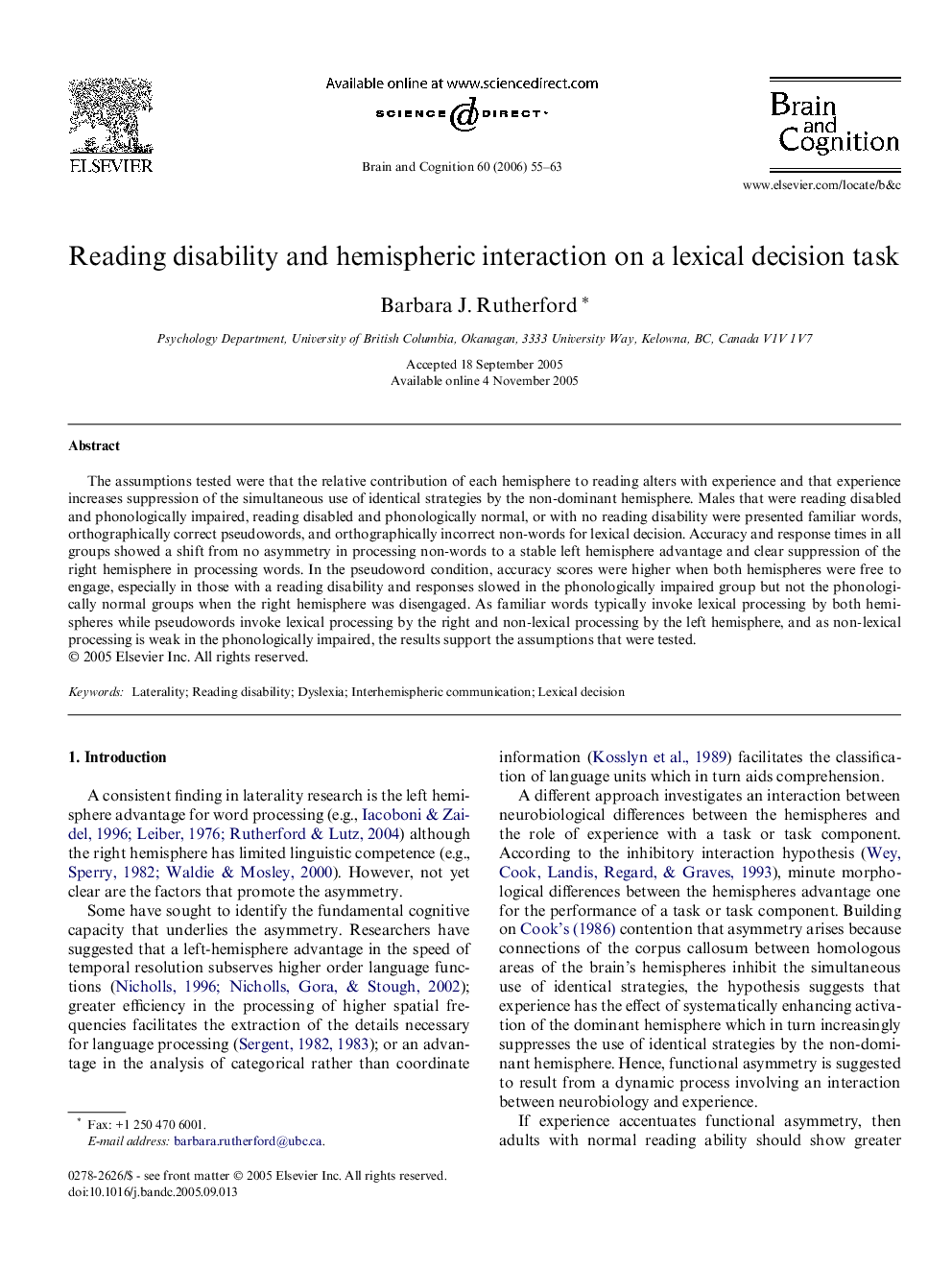| Article ID | Journal | Published Year | Pages | File Type |
|---|---|---|---|---|
| 925175 | Brain and Cognition | 2006 | 9 Pages |
The assumptions tested were that the relative contribution of each hemisphere to reading alters with experience and that experience increases suppression of the simultaneous use of identical strategies by the non-dominant hemisphere. Males that were reading disabled and phonologically impaired, reading disabled and phonologically normal, or with no reading disability were presented familiar words, orthographically correct pseudowords, and orthographically incorrect non-words for lexical decision. Accuracy and response times in all groups showed a shift from no asymmetry in processing non-words to a stable left hemisphere advantage and clear suppression of the right hemisphere in processing words. In the pseudoword condition, accuracy scores were higher when both hemispheres were free to engage, especially in those with a reading disability and responses slowed in the phonologically impaired group but not the phonologically normal groups when the right hemisphere was disengaged. As familiar words typically invoke lexical processing by both hemispheres while pseudowords invoke lexical processing by the right and non-lexical processing by the left hemisphere, and as non-lexical processing is weak in the phonologically impaired, the results support the assumptions that were tested.
